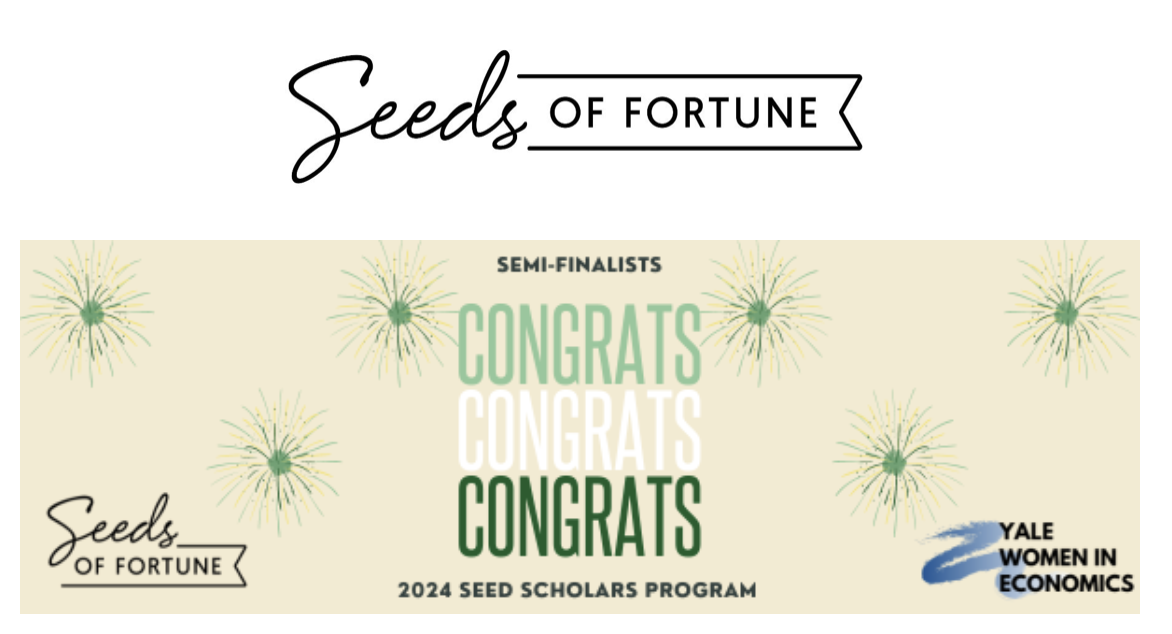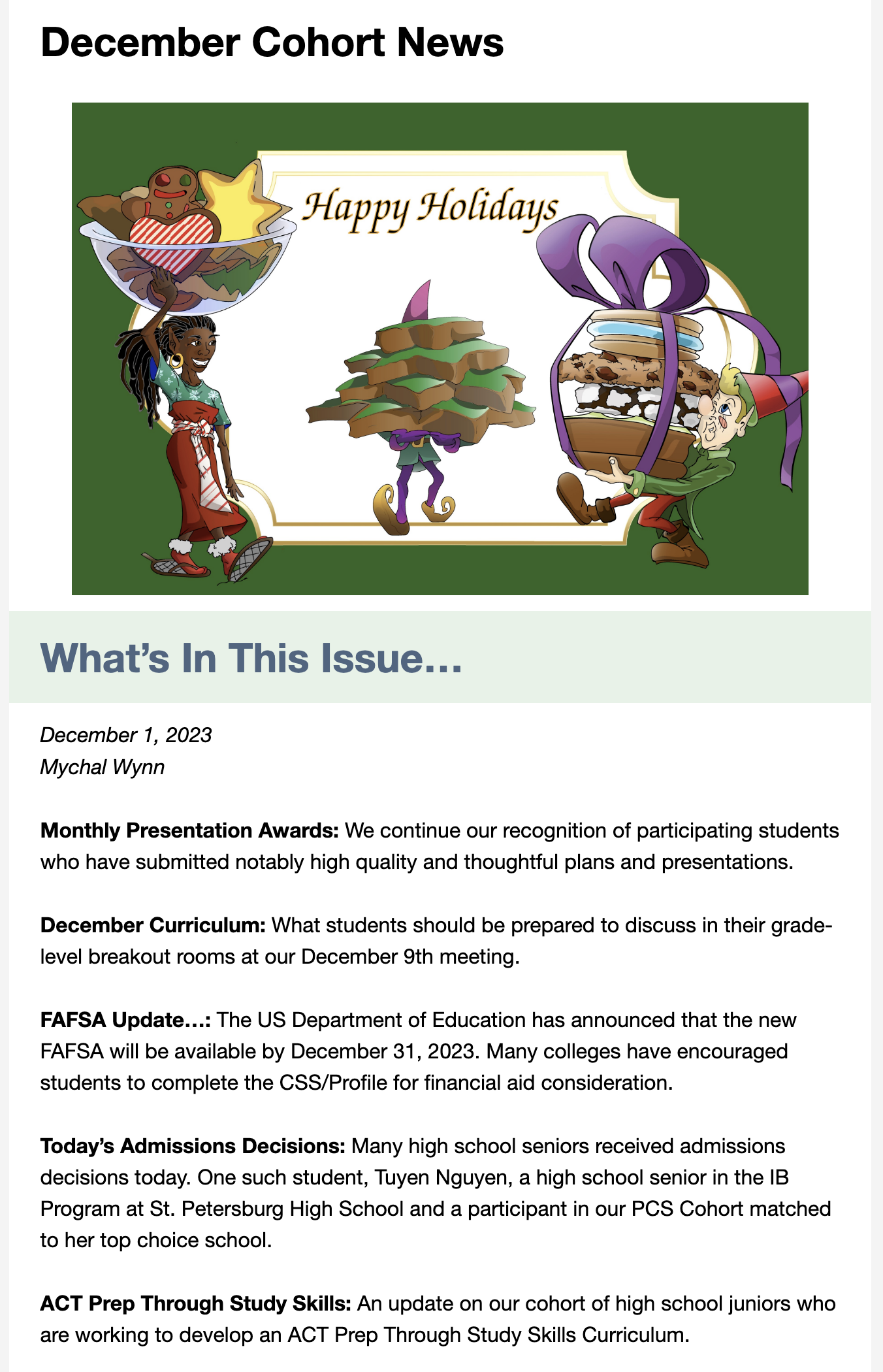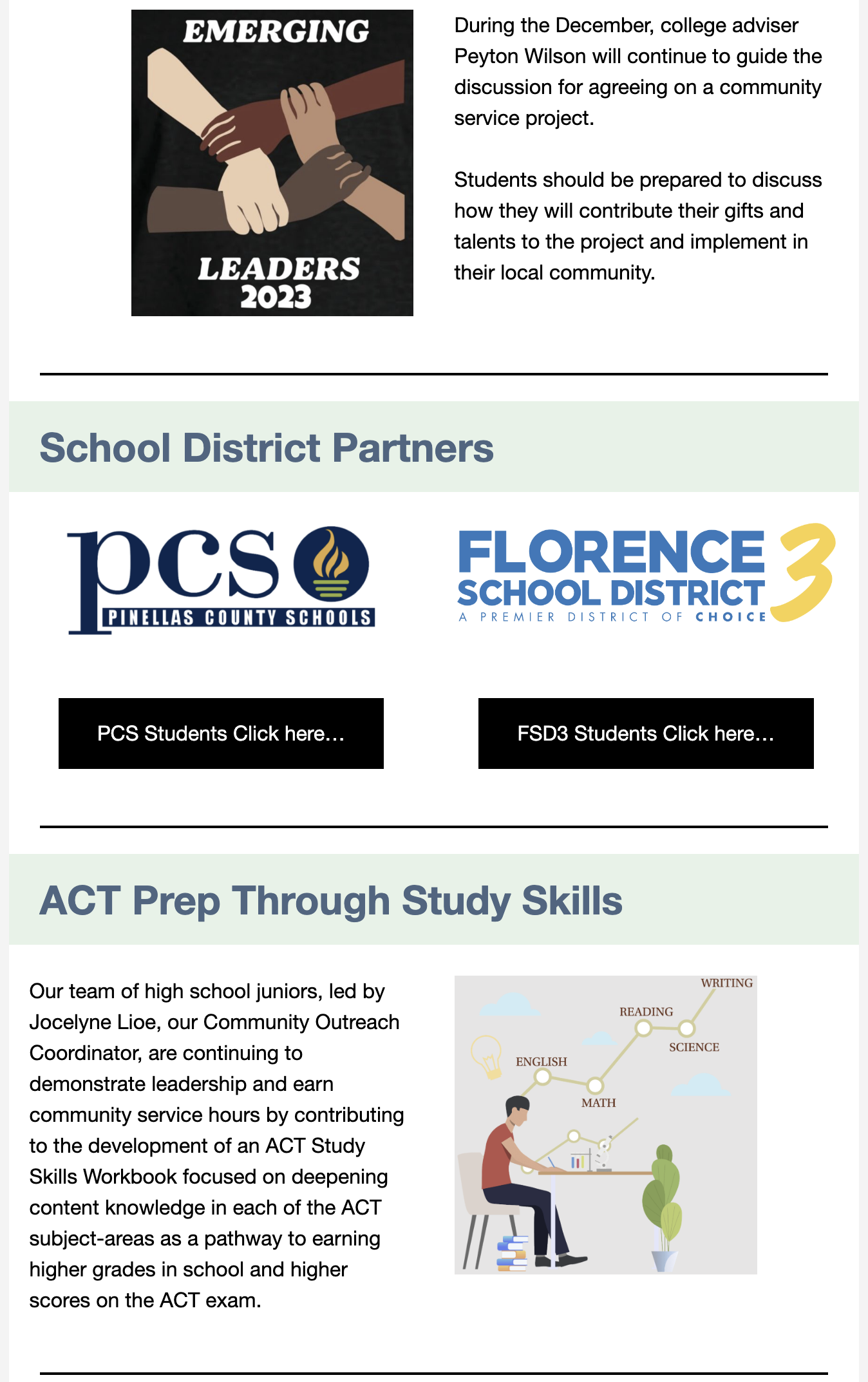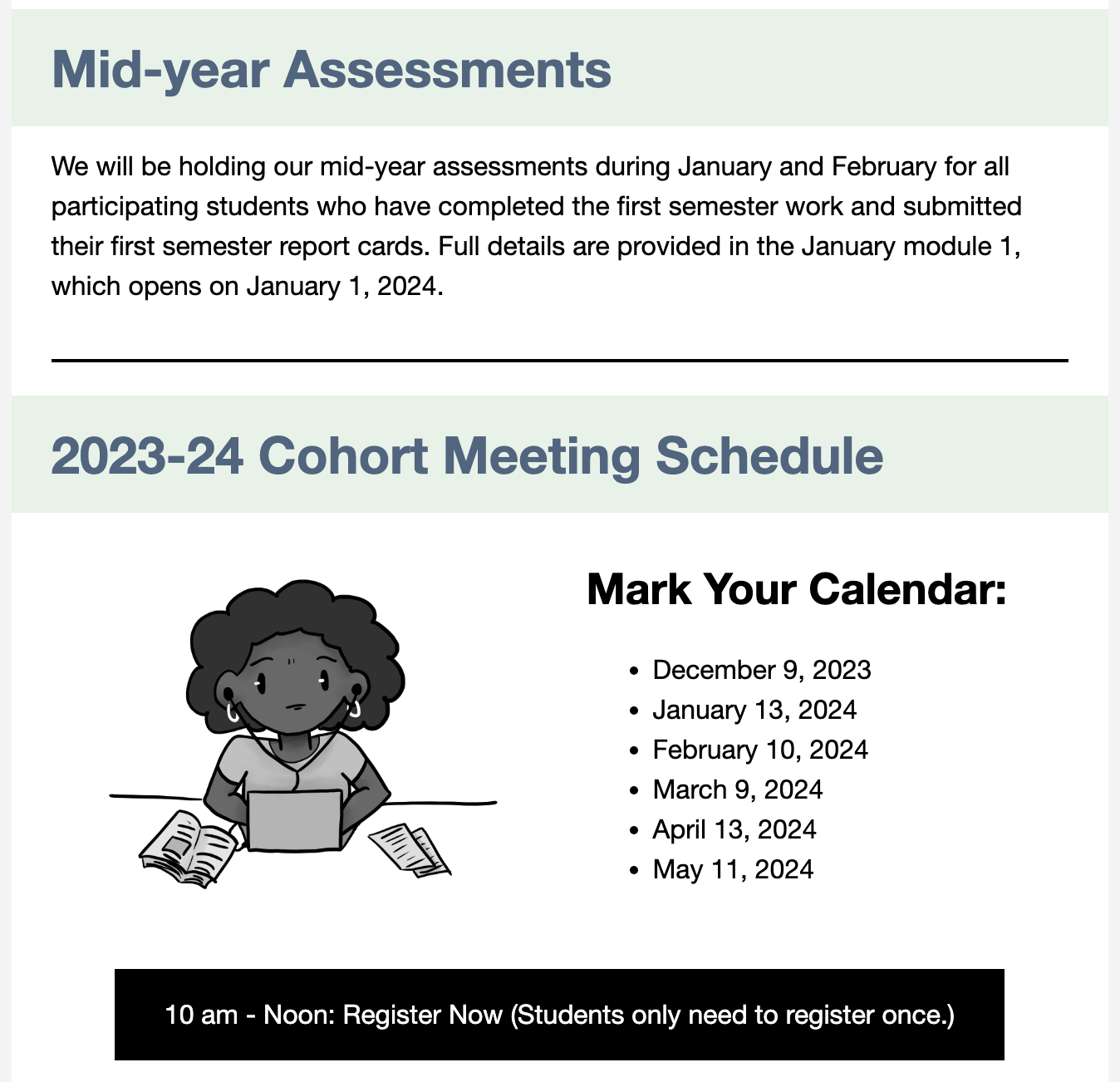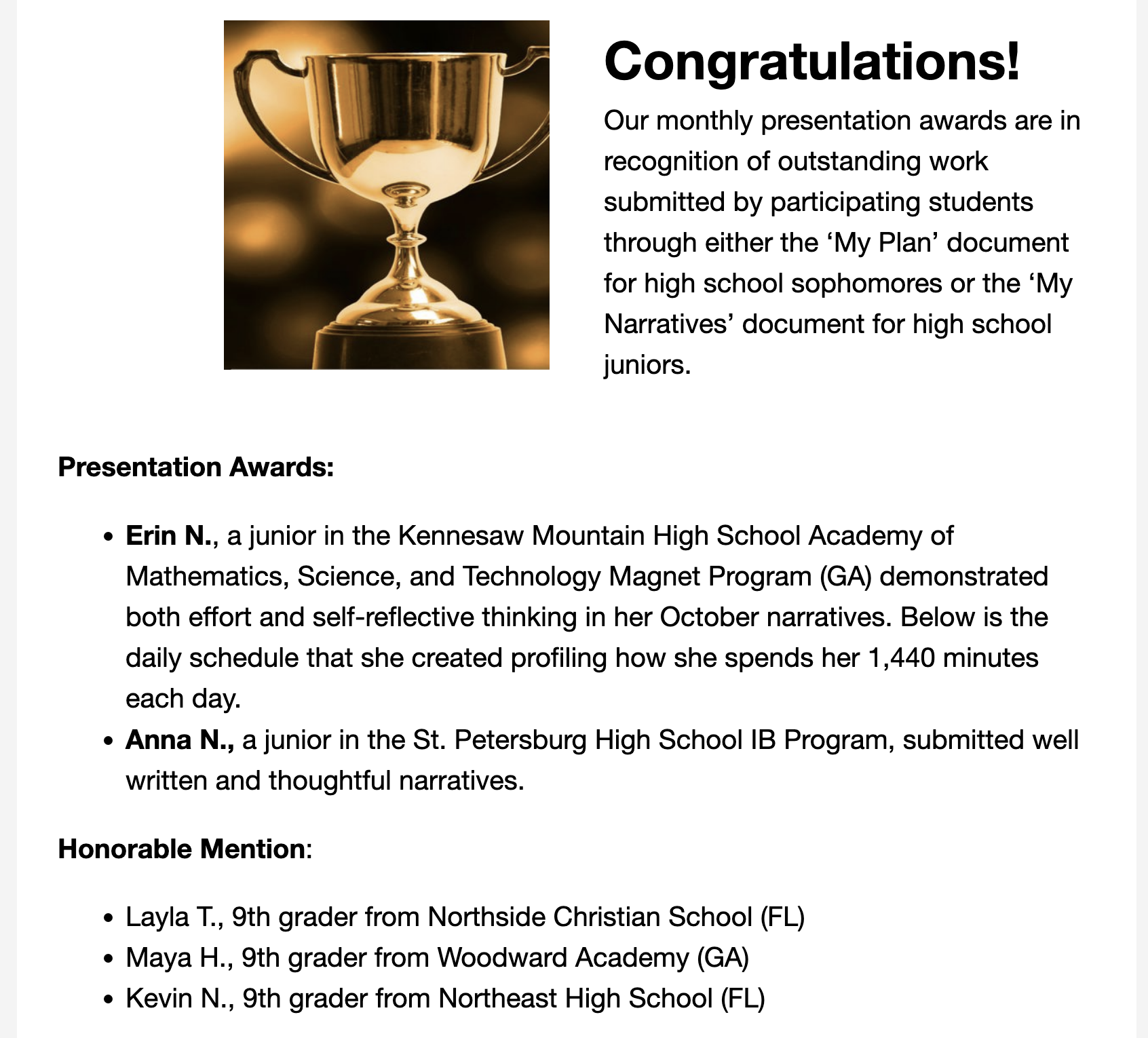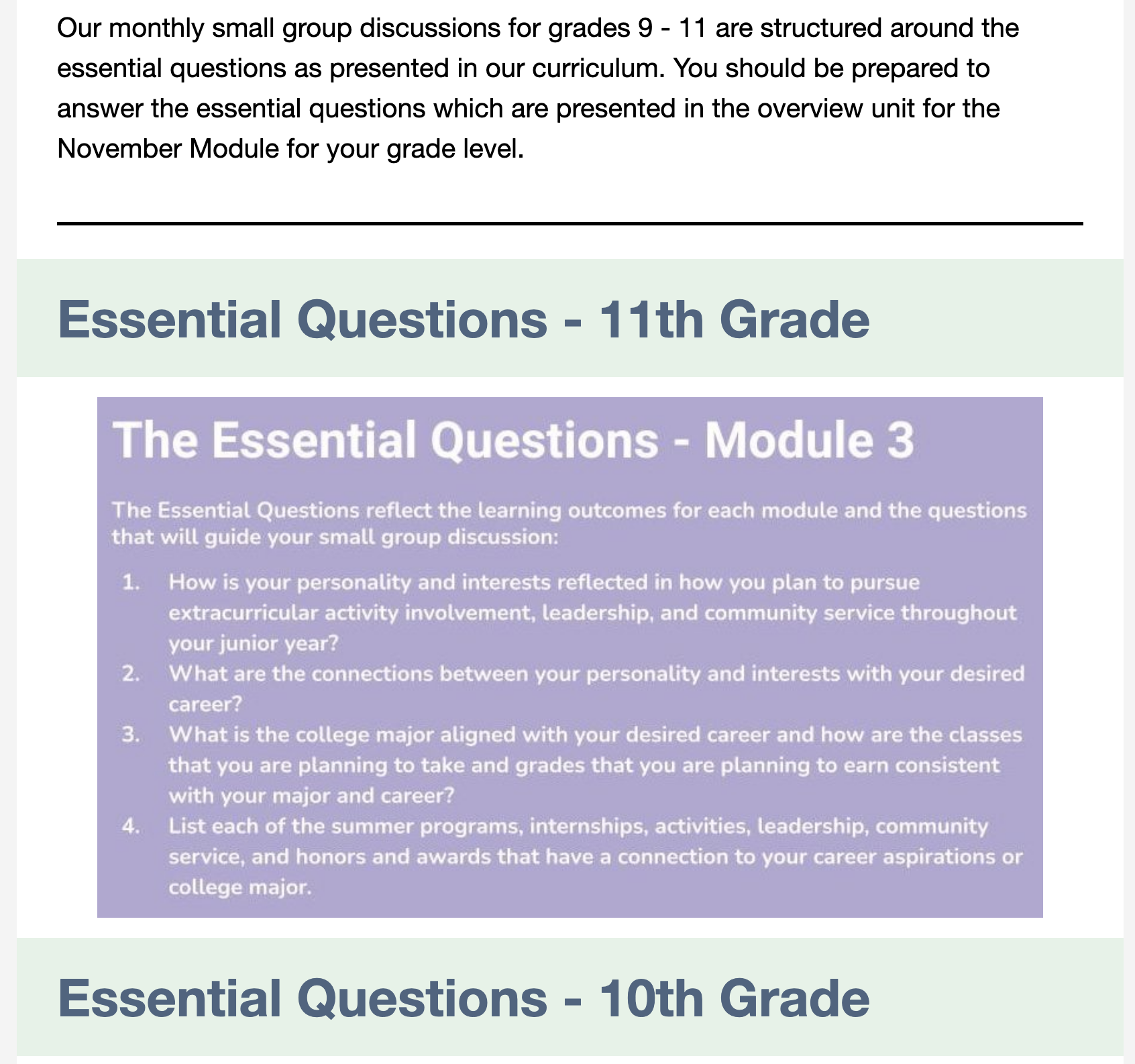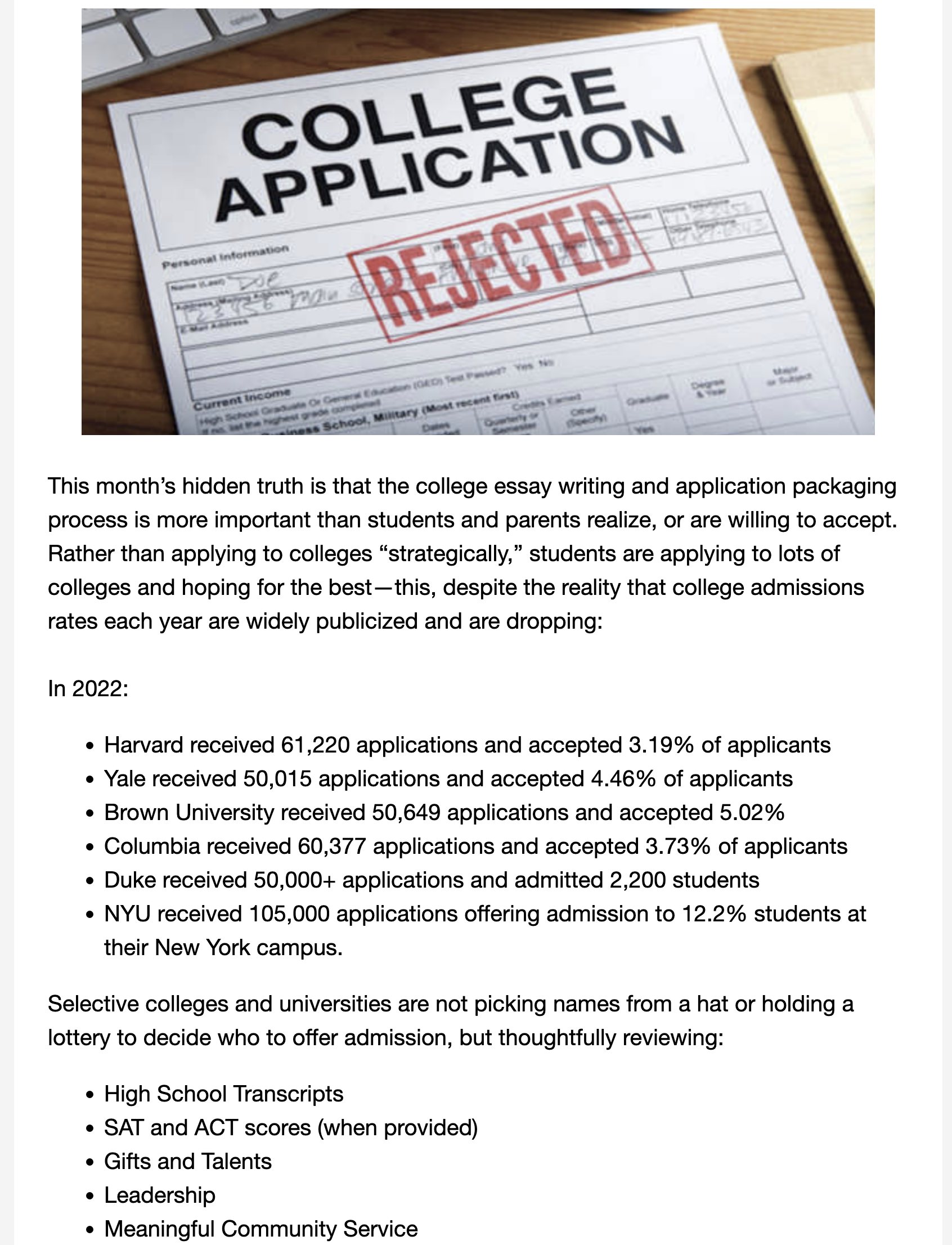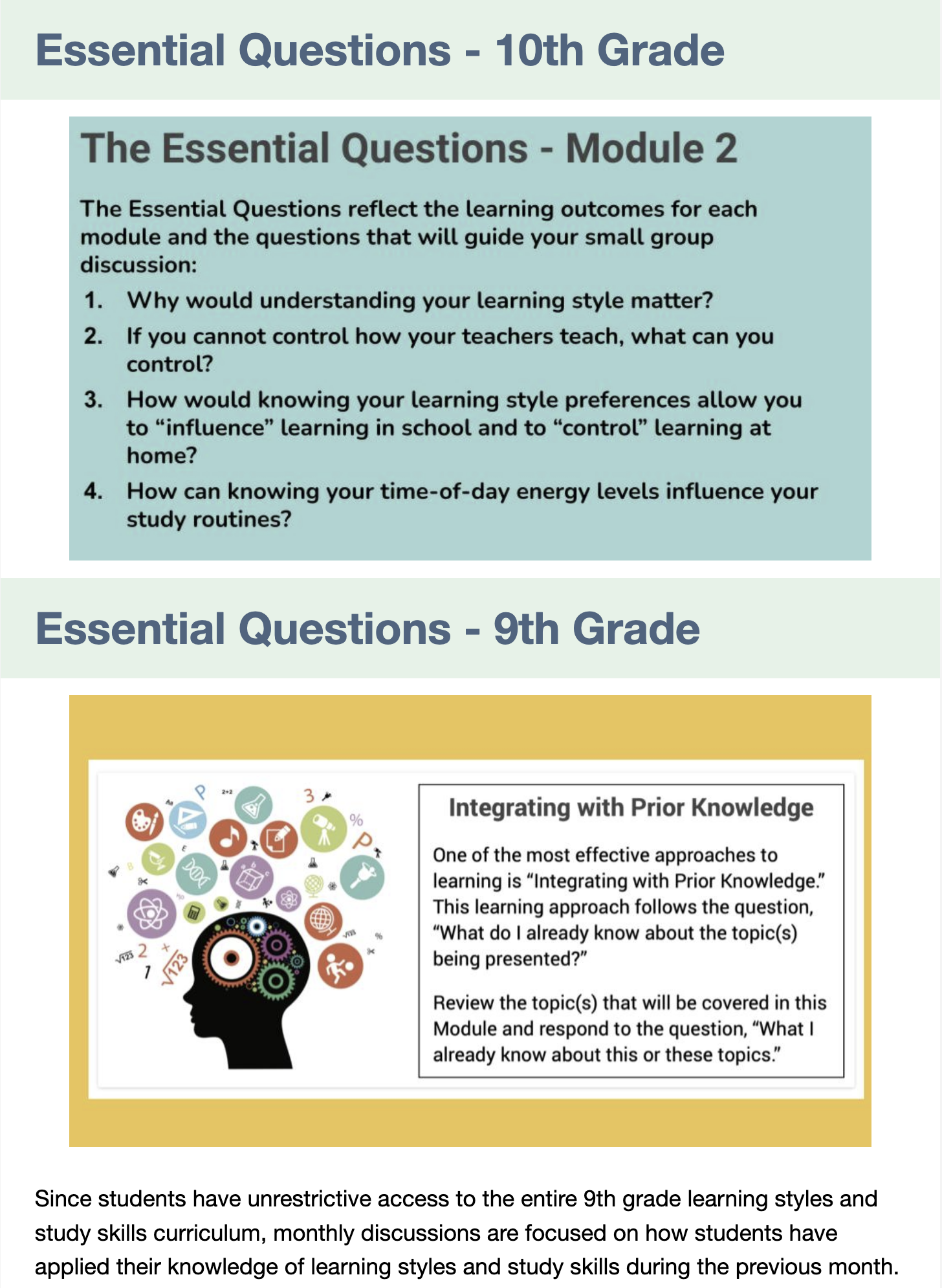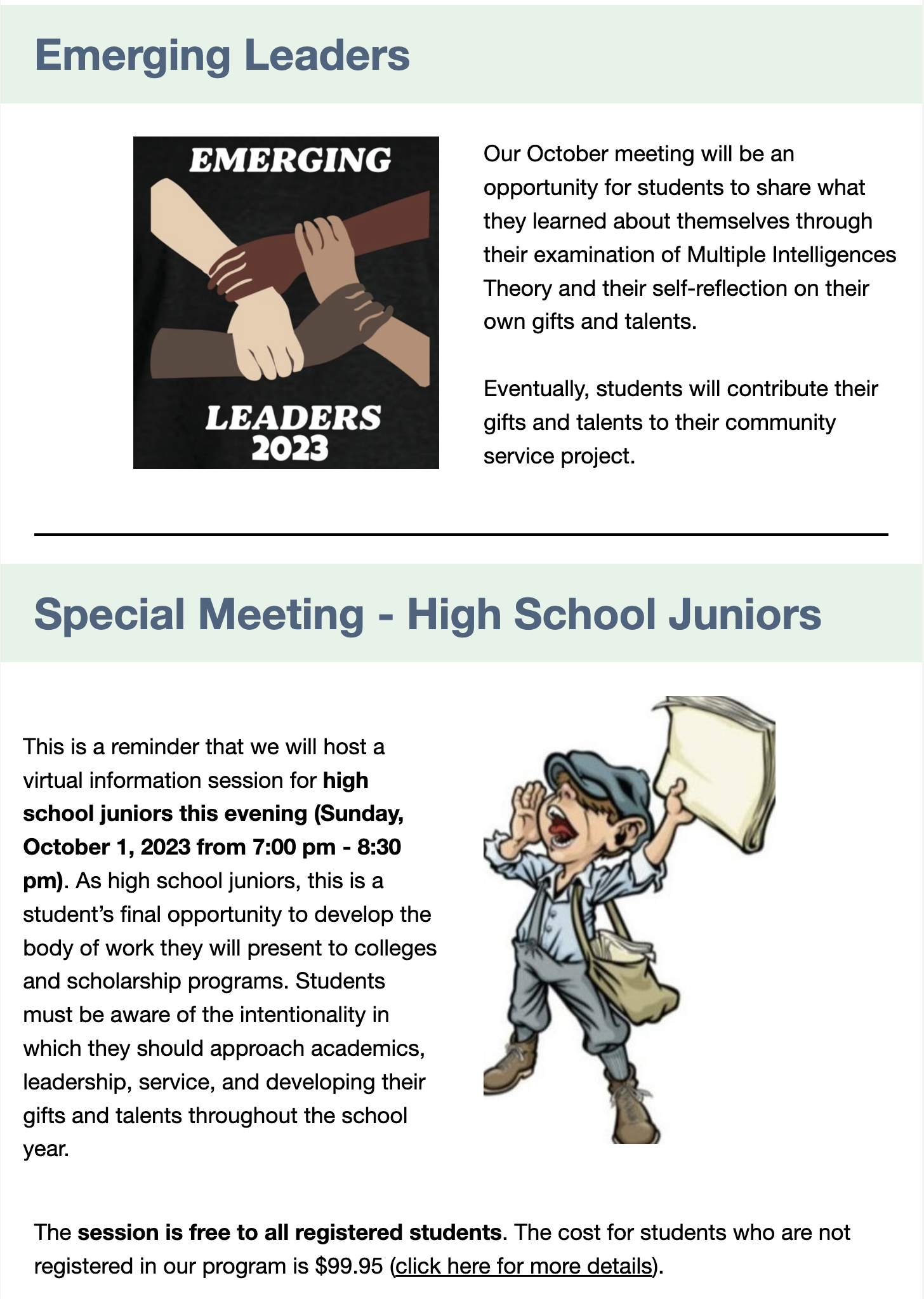Newsletters
Newsletter: July 1, 2024
July 1, 2024

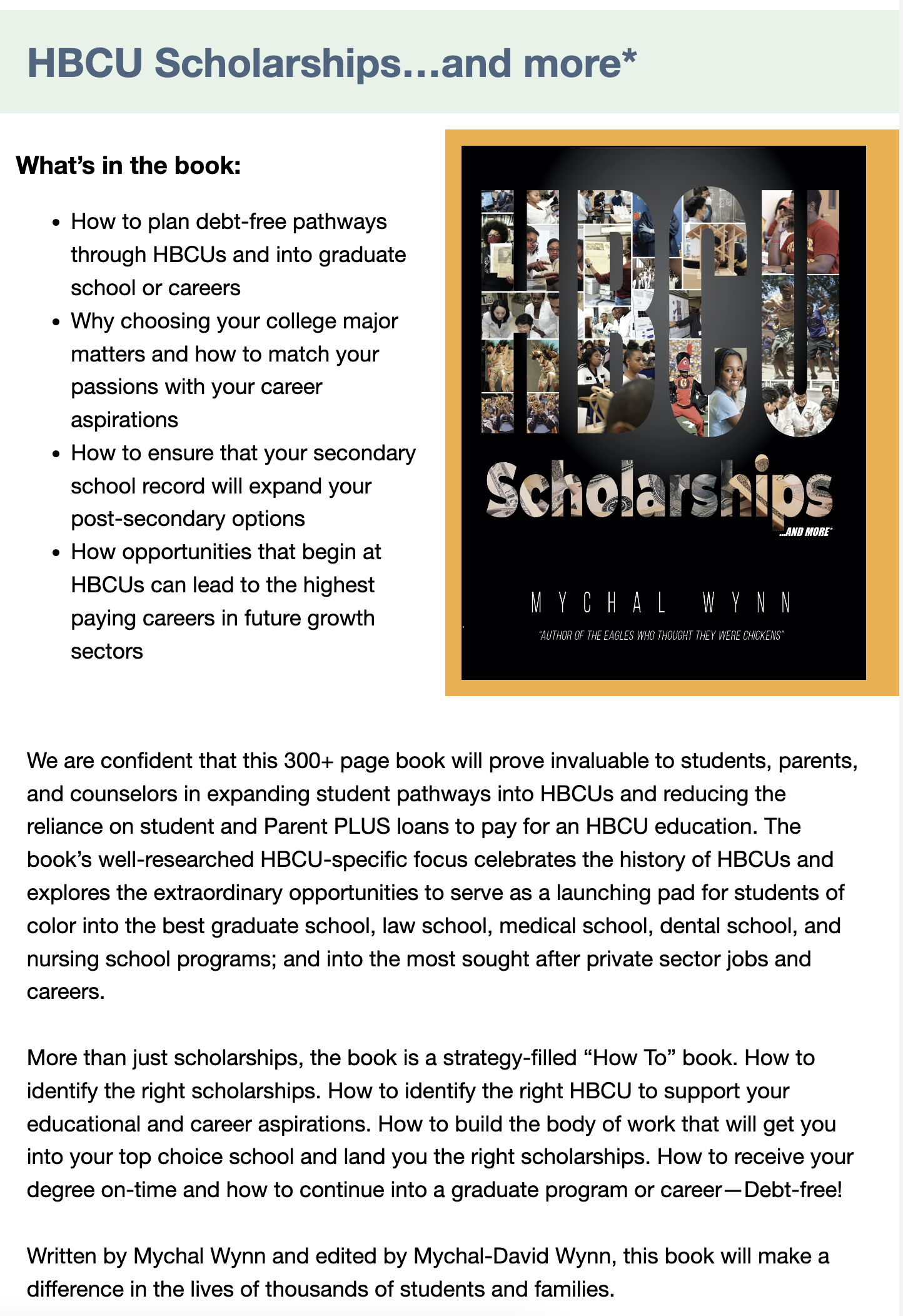









Newsletter: June 1, 2024
June 1, 2024
June 1, 2024
As a community-based organization, our contracts with school districts allow us to offer free college planning guidance to students and parents in our partner school districts. These partnerships have been hugely beneficial for parents and students, expanding postsecondary access and avoiding thousands of dollars in student loan debt. Our partnership with Guilford County Schools (NC) was nationally recognized and awarded the 2020 MAGNA Award by the National School Boards Association for our College Cohort Program supporting first generation and refugee students. With the retirement of Pinellas County Schools Minority Achievement Officer, Dr. Lewis Brinson, our program will no longer be funded. However, the success of students in our PCS College Cohort Program provide a lasting legacy to Dr. Brinson’s efforts.
Over the 6 years of our PCS program, students and families have avoided hundreds of thousands of dollars in student loan debt as a result of students being awarded full scholarships to such schools as Caltech, Claflin University, FAMU, Johns Hopkins, Swarthmore, Tuskegee, and The University of Chicago. Current high school juniors have been selected for such prestigious and highly selective programs as Brown Pre-College, MIT MITES, Northeastern University Accelerate, QuestBridge College Scholars, and Yale Young Global Scholars.
As we will continue our partnerships with Florence School District 3 (SC) and Judson ISD (TX), we want to thank Dr. Brinson for being a champion for all students and families, but particularly those from marginalized and under resource families and communities. Following are some of the amazing outcomes for students participating in our College Planning Cohort (TM) program.











Newsletter: May 1, 2024
May 1, 2024
College Cohort News…
May 1, 2024
Mychal Wynn

Happy Spring and Congratulations Class of 2024!!! Today is College Decision Day. We are excited to share in the joy of our students who have already finalized their enrollment decisions at such schools as Benedict College, Caltech, College of Charleston, Duke, Francis Marion, Hampton, Morehouse College, St. Petersburg College, USC – Columbia, Wake Tech, and Winthrop.
Drum roll please! On Saturday, May 11, 2024, we will announce the college enrollment decisions of all of our students during our High School Class of 2024 Senior Recognition and final cohort meeting of the 2023-24 school year. You and your family, teachers, counselors, coaches, friends, and neighbors are invited to join us.
Our Speaker
University of Chicago senior, Sydney Soskin, a member of our Pinellas County Schools Cohort and 2020 graduate of the St. Petersburg High School IB Program will share words of inspiration for our graduates.
Date: Saturday, May 11, 2024
Time: 10:00 am – Noon
We will have comments by Dr. Laura Hickson, Superintendent of Schools in Florence School District 3 (SC) and Dr. Lewis Brinson, Minority Achievement Officer, Pinellas County Schools (FL). Following the meeting, attendees will receive a link to download the 2024 Senior Recognition Souvenir Program.
 Seniors Have Crossed the Finish Line
Seniors Have Crossed the Finish Line
Attention Seniors:Saturday, May 4, 2024, at 11:59 pm is the deadline to submit your graduation packet and photo. It takes less than 20 minutes to complete the packet. Contact our office (678) 395-5825 or email any questions to cpc@collegeplanningcohort.com.
Emerging Middle School Leaders
Our Emerging Middle School Leaders will be presenting their collaborative project and sharing lessons learned through their multi-grade and multi-state community service collaboration.
We very much appreciate Peyton Wilson (George Washington University), the college adviser for our Emerging Middle School Leaders.
Congratulations
Peyton Wilson, a George Washington University graduate, who graciously served as the college adviser for our Emerging Middle School Leaders, has been accepted to the University of Chicago Graduate School where she will pursue an Advanced Masters Degree in Social Sector Leadership and Non-Profit Management. Peyton is a graduate of the Marietta High School IB Program (GA) and recipient of the Posse Academic Leadership Scholarship.
Anna, a high school junior from our Pinellas County Schools Cohort was selected for the University of Chicago Contagion: Infectious Agents & Diseases Summer Session. She was also accepted to the Infectious Disease and Immunology Gator WISE Program.
Anna has participated in our program since the 8th grade, has served on our youth leadership board, and is a founding member of the St. Petersburg High School College Cohort Club.
Josiah, a high school junior from our Pinellas County Schools Cohort was selected as a QuestBridge College Prep Scholar. Josiah is one of 3,911 students selected from an applicant pool of over 16,000 students.
Josiah who has participated in our program since the 8th grade was also accepted into the Northeastern University Accelerate Pre-College Experiential Entrepreneurship Program.
Jocelyne, a high school junior from our Pinellas County Schools Cohort will be attending the Jack Kent Cooke Senior Summit and participating in the University of Connecticut Digital Animation and Motion Graphics Program.
Jocelyne has participated in our program since she was a rising 6th grader and has been an active contributor and leader in our program for six years.
Arshia, a high school junior from our Pinellas County Schools Cohort was selected to join the 2024 MIT MITES Semester (previously named MOSTEC) program. Arshia was selected from a competitive pool of nearly 4,100 applicants from all over the world. The 2024 MITES Semester cohort will bring together individuals who represent a diversity of cultures, interests, identities, strengths, experiences, and geographic areas.
Arshia has participated in our program since the 8th grade and is a contributor to our ACT Prep and Study Skills Project.
Sanderlin Center Presentation
 On Saturday, May 4, 2024 from 10:00 am – Noon, we will be making an in-person presentation in St. Petersburg, Florida at the James B. Sanderlin Neighborhood Family Center. We will be providing a comprehensive presentation to parents and students regarding the impact of making strong transitions into middle school and high school and the profound influence these critical transition points can have on shaping a student’s future college and career opportunities. This promises to be an inspiring and informative session as we share how our middle school students developed 7-year plans that resulted in school success throughout middle school and high school; and multiple full scholarship opportunities when they applied to college. We will also profile some of our current Pinellas County Schools high school juniors, who joined our program as rising middle school students, and the scholarship, leadership, and community service profiles they have developed as a result of setting specific goals and pursuing intentional college-bound strategies.
On Saturday, May 4, 2024 from 10:00 am – Noon, we will be making an in-person presentation in St. Petersburg, Florida at the James B. Sanderlin Neighborhood Family Center. We will be providing a comprehensive presentation to parents and students regarding the impact of making strong transitions into middle school and high school and the profound influence these critical transition points can have on shaping a student’s future college and career opportunities. This promises to be an inspiring and informative session as we share how our middle school students developed 7-year plans that resulted in school success throughout middle school and high school; and multiple full scholarship opportunities when they applied to college. We will also profile some of our current Pinellas County Schools high school juniors, who joined our program as rising middle school students, and the scholarship, leadership, and community service profiles they have developed as a result of setting specific goals and pursuing intentional college-bound strategies.
If you have any friends or relatives in the St. Petersburg, Florida area, tell them to join us to be inspired and informed.
Sign Up Now…
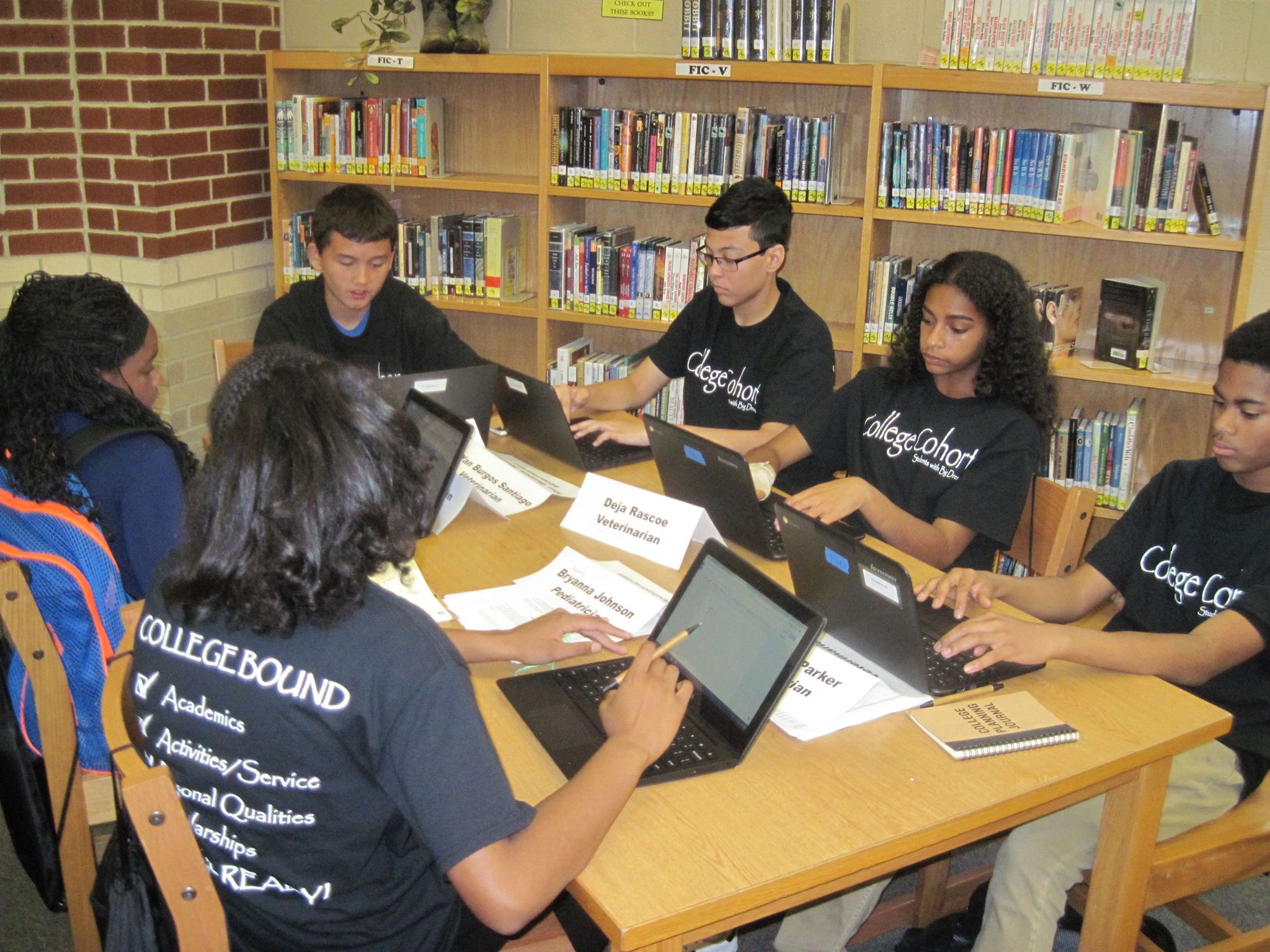
We have finalized the dates for our all-virtual curriculum-based summer enrichment and college planning boot camps (including free materials) for students in grades 6 – 12.
June 3 – 6 | 5:00 pm – 7:00 pm
Grades 6 – 8: Students will receive strategies for becoming successful learners as they explore opportunities to lead, serve, and develop their gifts and talents. Students will be introduced to the concept of “backwards mapping” by beginning with their college and career aspirations and working backwards in taking the right classes, earning the right grades, and becoming the type of student in a manner that is “aligned” with their future aspirations.
June 10 – 13 | 5:00 pm – 7:00 pm
Grades 9 – 11: The reason that students in our program are awarded full college scholarships at nearly 25 times the national average are the strategies that we guide students in developing. Through the boot camp, high school students will be guided in developing holistic strategies across our 3 pillars of scholarship, leadership, and service consistent with colleges’ holistic admissions practices.
Rising Seniors: Seniors will develop college and scholarship application strategies based on each student’s college/career aspirations; body of work; and family’s financial need. Students will be guided through such decision making as whether or not to submit test scores; whether to apply Early Decision or Early Action; and choosing the Common Application essay prompt providing the best context for the “package” they will be presenting to their colleges.
Choose Your Registration (Space is Limited):
All Others: Middle School Registration | High School Registration
We Have a New Project

We are excited to be working with the California Community Colleges System to support their HBCU Guaranteed Transfer Agreement.
While our College Planning System has guided many students into full HBCU scholarships, we are developing a book specifically for HBCUs, profiling the history, and providing step-by-step guidance in identifying scholarships and internships; schools that best match to majors and careers; and that will lead to a richly rewarding career and a debt-free HBCU experience.
This is the most comprehensive text available for high school students, community college students, and students currently attending HBCUs. The strategies are proven and the book is filled with examples of how to develop the “body of work” that will land the biggest scholarships, best internships, and even graduate school fellowships.
Fly-in Programs
We encourage our high school juniors to continue applying to fly-in programs. If you are invited to a program, not only will you receive an all-expenses paid visit to a great college, but you will build a relationship with the school. Consequently, a fly-in invitation significantly increases your chances for being offered admission.
Attention Cohort Students
All online classrooms will close at midnight, Friday, May 31, 2024. Please complete your My Plan documents and finalize your year-end assessments. We have so very much enjoyed working with all of our students in California, Georgia, Florida, North Carolina, and South Carolina.
We appreciate our college interns from The George Washington University and The University of Chicago.
We have not made a decision as to whether we will continue our college planing cohort program during the 2024-25 school year or if we will only be available to work with students 1-on-1. Look for an announcement during the summer.
What We Are Planning…
ACT Intensive Summer Sessions
We are planning 4-5 day ACT Intensive Sessions this summer, with each session focused on a specific ACT subject area. Each session will address the following 5 components:
- What you are expected to know on the ACT
- The foundational skills required to do well on each ACT section
- Learning and study strategies consistent with your learning style
- Developing a Study Cycle consistent with your grit, mindset, and temperament
- Daily pre- and post-testing

Mark Your Calendar for our Final Cohort Meeting:
May 11, 2024
Monthly meetings are restricted to students registered in our program and their parents.

Newsletter: April 1, 2024
April 1, 2024
College Cohort News…
April 1, 2024
Mychal Wynn

Throughout March and into April as college basketball teams compete in the NCAA Tournament, many teams made the tournament selection as the result of a new mindset that resulted in new results for their program. As we approach the end of the 2023-24 school year, this month’s newsletter provides insight into how our students are achieving new results.
Our Emerging Middle School Leaders will be making a presentation reflecting the mindset in which they approached their 2023-24 leadership and community service project. Cohort alumnae and University of Chicago student, Faith Kumi, will be our guest speaker and discuss the mindset that resulted in her being offered admission to UChicago, selection as a Ron Brown Scholar, and which has sustained her through one the most academically rigorous college programs.
This month’s newsletter also contains important announcements regarding our 2024 Senior Recognition, College Planning boot camps, ACT boot camps, and speaking engagements this month.
 Approaching the Finish Line
Approaching the Finish Line
As a result of the months long delay in students being able to complete the FAFSA, many colleges have moved their enrollment deadlines from the traditional May 1 deadline to May 15 or June 1. Seniors should confirm the enrollment deadline with their schools. While our students who applied Early Decision have received their financial aid awards and finalized their college enrollment decision, many students are still awaiting their financial aid award letters. It is always advisable not to submit an enrollment deposit until you have received your financial aid award letter and know how much your actual college costs will be and how much student loan debt you will be required to assume for the 2024-25 academic year and how much your student loan debt is estimated to increase during each subsequent year of college.
We are now preparing our 2024 Senior Recognition Program, which will be presented to parents and students as a keepsake at our final cohort meeting of the 2023-24 school year, scheduled for 10:00 am on May 11, 2024. We will recognize each of our graduating seniors with whom we have worked 1-on-1 and through our cohort program in Georgia, Florida, North Carolina, and South Carolina.
Tabernacle of Praise Presentation
On Saturday, April 13, 2024 from 10:00 am – Noon, we will be participating on a panel discussion for The Girls of Dignity mentorship program. The panel discussion will be held at the Tabernacle of Praise Church International located at 1640 GA- 42 North in McDonough, Georgia.
The focus of the college readiness panel is to bring forth knowledge about various aspects of college preparation from grades, to activities, financial aid, scholarships, financial literacy, and balancing college life. The sessions promises to be informative for all students, k – 12 and college.
Sanderlin Center Presentation
 On Saturday, May 4, 2024 from 10:00 am – Noon, we will be making an in-person presentation in St. Petersburg, Florida at the James B. Sanderlin Neighborhood Family Center. We will be providing a comprehensive presentation to parents and students regarding the impact of making strong transitions into middle school and high school and the profound influence these critical transition points can have on shaping a student’s future college and career opportunities. This promises to be an inspiring and informative session as we share how our middle school students developed 7-year plans that resulted in school success throughout middle school and high school; and multiple full scholarship opportunities when they applied to college. We will also profile some of our current Pinellas County Schools high school juniors, who joined our program as rising middle school students, and the scholarship, leadership, and community service profiles they have developed as a result of setting specific goals and pursuing intentional college-bound strategies.
On Saturday, May 4, 2024 from 10:00 am – Noon, we will be making an in-person presentation in St. Petersburg, Florida at the James B. Sanderlin Neighborhood Family Center. We will be providing a comprehensive presentation to parents and students regarding the impact of making strong transitions into middle school and high school and the profound influence these critical transition points can have on shaping a student’s future college and career opportunities. This promises to be an inspiring and informative session as we share how our middle school students developed 7-year plans that resulted in school success throughout middle school and high school; and multiple full scholarship opportunities when they applied to college. We will also profile some of our current Pinellas County Schools high school juniors, who joined our program as rising middle school students, and the scholarship, leadership, and community service profiles they have developed as a result of setting specific goals and pursuing intentional college-bound strategies.
If you have any friends or relatives in the St. Petersburg, Florida area, tell them to join us to be inspired and informed.
Guest Speaker – Faith Kumi
 Cohort alumnae, Ron Brown Scholar, and current University of Chicago Odyssey Scholar, Faith Kumi, will be the guest speaker at our April cohort meeting. Faith brings unique insight into the grit and mindset needed to develop the body of work to be offered admission to selective colleges and compete for high-dollar scholarships.
Cohort alumnae, Ron Brown Scholar, and current University of Chicago Odyssey Scholar, Faith Kumi, will be the guest speaker at our April cohort meeting. Faith brings unique insight into the grit and mindset needed to develop the body of work to be offered admission to selective colleges and compete for high-dollar scholarships.
Faith will speak promptly at 10:00 am so we ask that students and parents be on time.
Our 3 pillars of scholarship, leadership, and service are not things that Faith did to get into college, but reflects who Faith is. A 2021 graduate of the Marietta High School IB Program (GA), even after entering college, Faith has continued to serve as a mentor, discussion group leader, and college intern for our College Planning Cohort Program.
Special Presentation
 Our Emerging Middle School Leaders will make a special presentation during our April cohort meeting of their community service project. Last year, students created their Emerging Leaders design that was printed onto t-shirts.
Our Emerging Middle School Leaders will make a special presentation during our April cohort meeting of their community service project. Last year, students created their Emerging Leaders design that was printed onto t-shirts.
This year, students have engaged in leadership and civic advocacy through a collaborative project to make a difference in their respective communities. We are excited to see how they are leading change in their communities.
PCS Summer Boot Camp

Pictured above are students from our first Pinellas County Schools College Planning Boot Camp in 2018. This year’s boot camp will be the last for Dr. Lewis Brinson, the Pinellas County Schools Minority Achievement Officer who will be retiring. Dr. Brinson brought our program to Pinellas County Schools and has been a champion of our program working tirelessly to ensure that not only students of color and first generation students, but all PCS students have access to the personalized support and college planning expertise needed to navigate competitive college admissions and avoid student loan debt.
Dr. Brinson’s efforts has resulted in phenomenal outcomes for PCS students who have been awarded millions of dollars in scholarships and avoided thousands of dollars in student loan debt. Cohort students have received full scholarships to such liberal arts colleges, research universities, and HBCUs as Amherst College, Caltech, Claflin University Honors College, FAMU, Johns Hopkins University, The University of Chicago, Swarthmore College, Tuskegee University, Williams College, and Xavier University of Louisiana.
Dr. Brinson can retired knowing that his efforts on behalf of first generation and marginalized students is making history in Pinellas County Schools with their selection as Jack Kent Cook College Scholars, QuestBridge College Prep Scholars, QuestBridge College Match Finalists, Tuskegee University Distinguished Presidential Scholars, and University of Chicago Odyssey Scholars. Dr. Brinson, St. Peter has a special place for you at the Throne of Grace.
Are You Coachable?

You Must Be Coachable
As colleges compete in the NCAA Men’s and Women’s Basketball Tournament, you can observe coaches huddling their players repeatedly throughout the game to plan strategy. After the huddle breaks and players return to the court, the players must implement the strategy that the coach set out in their sideline huddle. Our program works in exactly the same way. In each of our monthly modules, we coach you through developing grade level appropriate strategies. However, it is the manner in which you engage in the units, create your slides, write your narratives, conduct your research, and apply our guidance, which determines if you are putting the pieces together and following the strategies that we have outlined.
Building Your Body of Work
As a basketball coach using a tablet to draw a play, the academic résumé, profile, and narrative document that we guide you in developing reflects both, your body of work and your strategy. Or, as high school junior Nishan Watson refers to as “My College Playbook.”
There are many pieces involved in the process of developing the body of work that you will present to colleges, scholarship providers, and even for internships. The body of work that we guide you developing as reflected on your résumé as you enter middle school will evolve into a CV (curriculum vitae) that you will continue building as a college student in preparation for applying to medical school, law school, graduate school, internships, or for employment.
We Have a System
Lake City, South Carolina was our first school district partner and many of our cohort students in South Carolina are attending the University of South Carolina so I have been following South Carolina basketball. When Coach Dawn Staley explains the success of the USC Women’s Basketball Program, she routinely talks about the “system” that they have and how students must understand and accept their system if they are to be successful. So too, is our college planning program, which is explained in great detail on our website (Our College Planning System). Invariable, students who have had the best outcomes in our program have not had the highest GPAs or SAT/ACT scores, but are students who have embraced our system and accepted our guidance.
Winning – The Result of Your Efforts and Our Guidance
Fitting the pieces of your body of work together, is referred to in our program as alignment. This means that we are guiding you in aligning your gifts and talents, leadership, community service and countless other actions taken throughout the school year and during the summer months in a manner that is consistent with your college, career, and scholarship aspirations. Coach Staley describes this process as “building the right habits.” Getting into your top college choice and earning a full college scholarship is no more guaranteed than Coach Staley coaching her team to a third National Championship. However, if you follow our guidance, build the right habits, and keep the main thing the main thing, you will expand your college and scholarship opportunities. And just maybe, you will celebrate getting into your dream school and being awarded a full scholarship.
 What We Are Planning…
What We Are Planning…
ACT Intensive Summer Sessions
We are planning 4-5 day ACT Intensive Sessions this summer, with each session focused on a specific ACT subject area. Each session will address the following 5 components:
- What you are expected to know on the ACT
- The foundational skills required to do well on each ACT section
- Learning and study strategies consistent with your learning style
- Developing a Study Cycle consistent with your grit, mindset, and temperament
- Daily pre- and post-testing
College Planning Boot Camps
We are finalizing our summer schedule of all virtual 4-5 day College Planning Boot Camps. Registration will be open to students in grades 6 – 12 from throughout the United States. The learning outcome will be for each participating student to leave with a college-focused action plan from their current grade level through the time that they apply to college and for scholarships. 1-on-1 guidance will also be available.
April Discussion Groups
11th Grade: High school juniors should be prepared to share and discuss their college research. The table presented below is taken from Module 8: Unit 3 – Lesson – College Research.

10th Grade: High school sophomores are encouraged to attend the 11th grade discussion group to listen to how high school juniors have been engaged in their college and scholarship research.
9th Grade: There will not be a 9th grade discussion group this month so 9th graders may either be dismissed following the Emerging Middle School Leaders presentation or join the 10th and 11th grade discussion group.
Emerging Middle School Leaders: Be prepared to make your powerpoint presentation profiling your leadership and community service project during the general session.
ACT Prep and Learning Strategies Plan: Be prepared to provide an update on where you are on your respective areas of responsibility as we approach the May 1 deadline for finalizing the project.

Mark Your Calendar:
- April 13, 2024
- May 11, 2024
Monthly meetings are restricted to students registered in our program and their parents.

Newsletter: March 1, 2024
March 1, 2024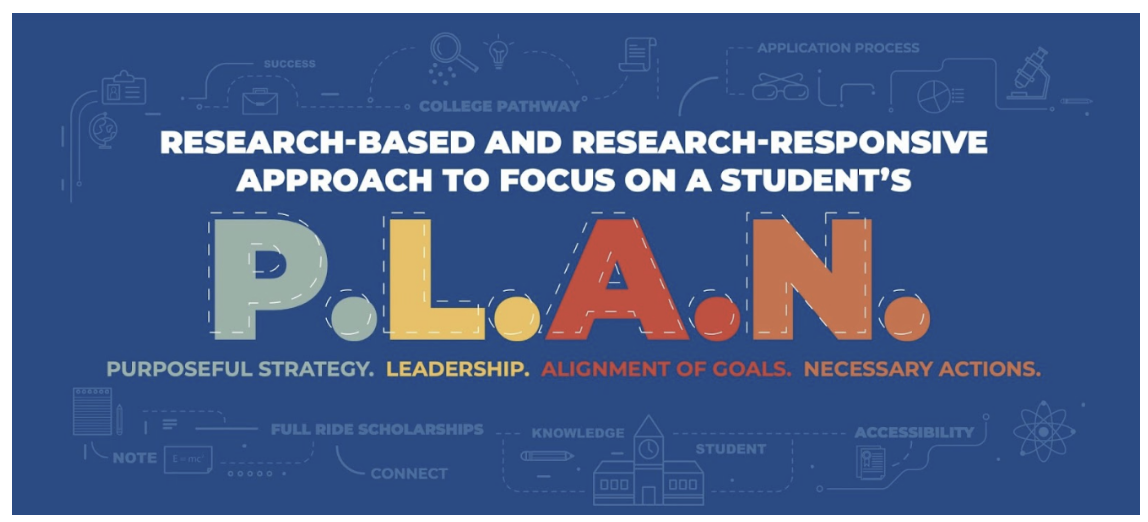
College Cohort News…
March 1, 2024
Mychal Wynn

This month we are presenting College Cohort Scholar Awards based on students’ first semester academic performance. Scholarship is the first of our program’s 3 pillars: Scholarship, Leadership, and Service. Academic scholarship is a precursor to successful PSAT, SAT, or ACT exam performance with exam performance providing a direct link to merit- and need-based scholarship opportunities.
A core question for our students is, “What has become clearer to you?” Our own response to this question drives the continuing evolution of our program. Through published materials we have been writers and publishers. Through teacher and counselor training we have been staff developers. Through parent and student presentations we have been informational and motivational speakers. Now, by providing personalized guidance for students and parents, we are serving as coaches. Not just college planning coaches, but learning coaches, which is the context in which we are now approaching ACT Learning and Study Strategies—not as prep for the ACT, but as learning through the ACT. This month’s newsletter recognizes academic achievement and provides test prep guidance.
Congratulations Cohort Scholars
Following are the recognition levels for our College Cohort Scholar Awards, based on academic GPA:
3.0 – 3.49 – Scholar
3.5 – 3.99 – Scholar with Honor
4.0+ – Scholar with Highest Honor
Join us in celebrating the following students who embody our pillar of scholarship. We believe that the intentionality with which they are pursuing learning in their middle school and high school classes will expand their postsecondary opportunities whatever their educational or career pathway.
College Cohort Scholar
Elijah, E., 9th Grade, Eagle’s Landing Christian Academy (GA)
Kalyn C., 11th Grade, Panther Creek High School (NC)
London M., 6th Grade, Safety Harbor Middle School (FL)
Zaire H., 11th Grade, Marietta High School (GA)
College Cohort Scholar with Honor
Anna N., 11th Grade, St. Petersburg High School IB Program (FL)
Cameron S., 11th Grade, Landmark Christian School (GA)
Erin N., 11th Grade, Kennesaw Mountain High School Magnet Program (GA)
Isaiah E., 9th Grade, Eagle’s Landing Christian Academy (GA)
Ja’Nae C., 11th Grade, Lake City Early College High School (SC)
Joshua J., 8th Grade, Creekland Middle School (GA)
Kennedi S., 11th Grade, Pope High School (GA)
Layla T., 9th Grade, Northside Christian School (FL)
V’mari C-K., 7th Grade, Fitzgerald Middle School (FL)
Weldon “TJ” M., 11th Grade, Druid Hills High School (GA)
Zachariah T., 10th Grade, Marietta High School IB Program (GA)
Maya H., 9th Grade, Woodward Academy (GA)
Nate H., 11th Grade, Woodward Academy (GA)
College Cohort Scholar with Highest Honor
Arshia A., 11th Grade, Palm Harbor University IB Program (FL)
Bryan N., 9th Grade, Mt. Paran Christian School (GA)
Charles P., 10th Grade, Marietta High School (GA)
Ezekiel C., II, 11th Grade, Rivers Academy (GA)
Griffin S., 10th Grade, Lakewood high School CAT Program (FL)
Jocelyne L., 11th Grade, St. Petersburg High School IB Program (FL)
Josiah W., 11th Grade, Boca Ciega High School (FL)
Kevin N., 9th Grade, Northeast High School (FL)
Latanya M., 11th Grade, J Paul Truluck Creative Arts & Science Magnet School (SC)
Nishan W., 11th Grade, Hiram High School Academy of Computer Science (GA)
Madison L., 10th Grade, J Paul Truluck Creative Arts & Science Magnet School (SC)
Vaughn T., 9th Grade, North Cobb High School Magnet Program (GA)
Why the ACT?
As we noted in our November newsletter when we introduced our ACT Project, we believe that students should commit to either the SAT or the ACT. Since colleges will accept either exam, we have chosen to commit our efforts to assisting students in increasing ACT scores—not by focusing on the test, but focusing on learning. To support learning, we believe:
- The ACT has sufficient support tools and materials
- The ACT is aligned with the high school curriculum
- By focusing on learning, students will deepen their content knowledge in each of the ACT subject-areas, thereby increasing both grades and test scores
A focused study approach to increasing content knowledge in each of the ACT subject-areas (math, science, English, and reading—as well as writing) will correlate with higher performance in a student’s corresponding high school classes.
More Than Test Prep
If the focus is wrong, then the approach to learning will be wrong as ell. This means that if a student’s focus is on prepping for the ACT but not on developing the underlining knowledge that is being tested on the ACT, then the focus is wrong. Consider why Duke University, which admits the most academically accomplished students from throughout the world, coaches students through The Study Cycle:
“The study cycle is a guide to help you distribute your studies so you aren’t doing it all at once at the last minute, and to reinforce your learning from one step to the next.”
While thousands of students admitted to Duke will have spent many thousands of dollars on test prep, Duke recognizes that even the most academically accomplished students oftentimes enter college lacking the underlying learning strategies and study skills to be successful college students.
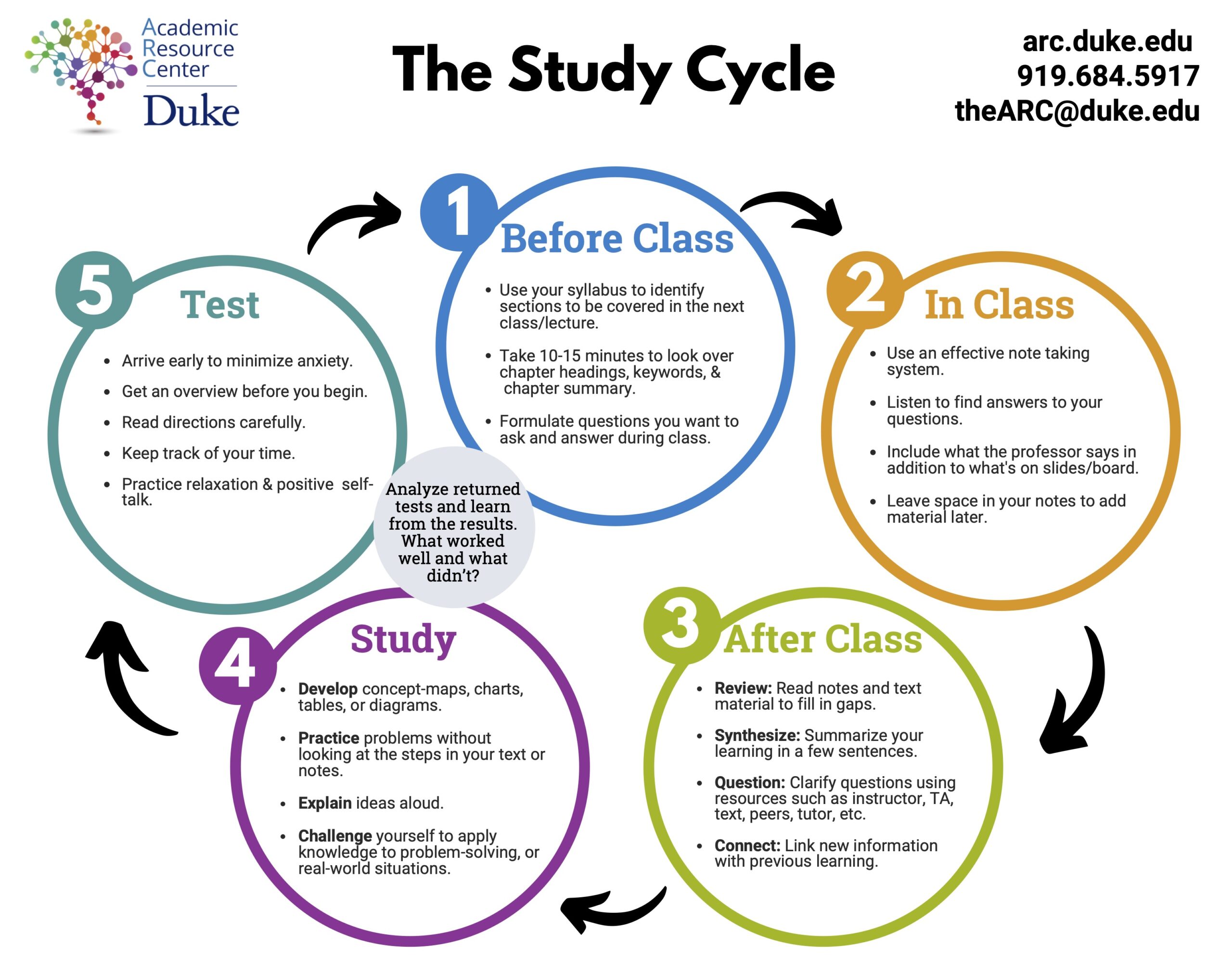
Higher Scores – Better Students
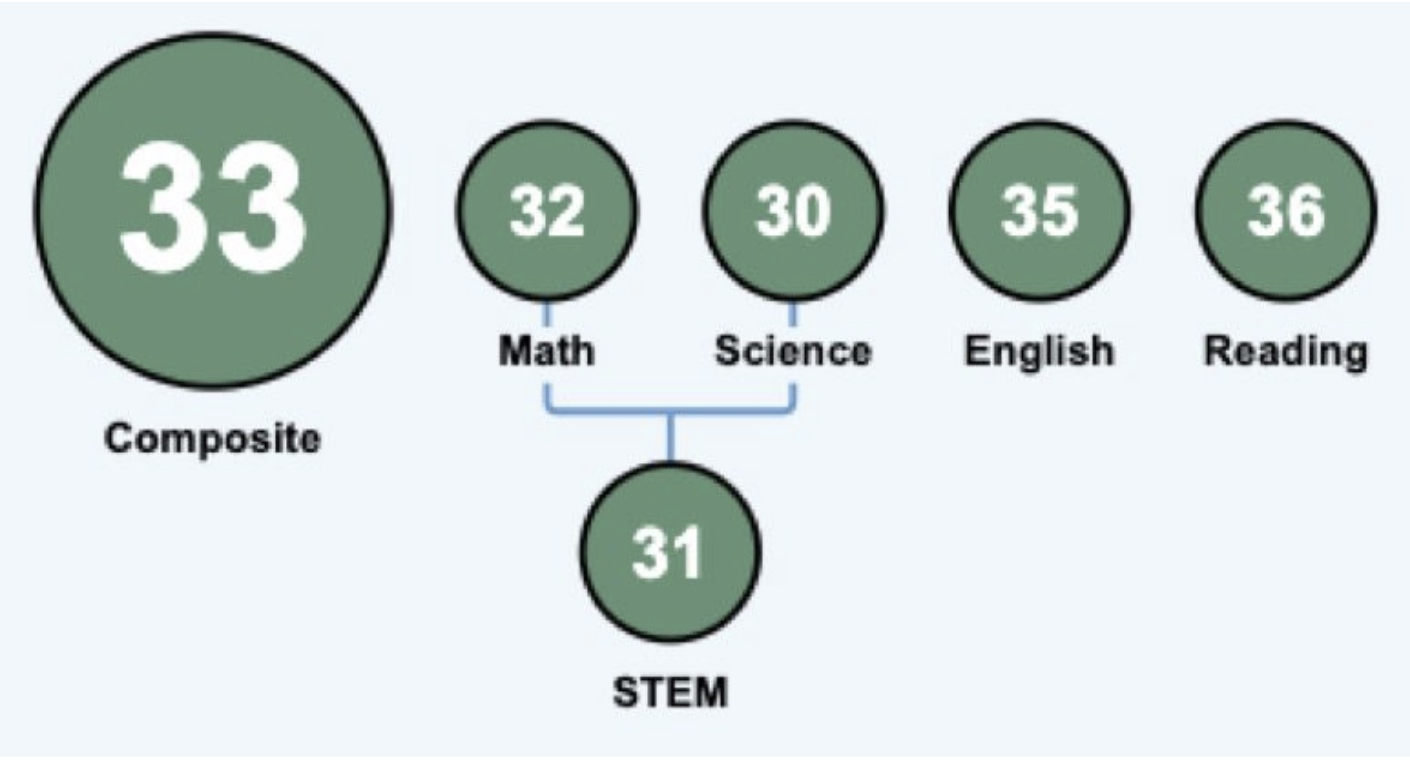
Congratulations to our ACT Project contributors who earned scholarship qualifying scores on the February ACT exam. While our students acknowledge the value of test taking strategies, they note that their scores reflect their level of content knowledge and critical thinking. Both of which are skills that they use each day in school and upon which they will rely after entering college. However, their commitment to leadership and service by helping other students to become better students and earn higher test scores will be recognized by both colleges and scholarship providers.
Our contributors have established themselves as extraordinary role models for our students in grades 6 – 11, as they bring value to our program and to their respective high schools.
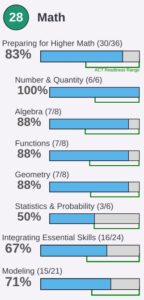 The ACT Math section is the most difficult for the majority of test takers. Only 30% of students achieved an ACT college readiness score of 22. However, as indicated in the illustration to the left, if you have taken the ACT, or plan to take the exam this month, your score report will provide insight into your learning gaps.
The ACT Math section is the most difficult for the majority of test takers. Only 30% of students achieved an ACT college readiness score of 22. However, as indicated in the illustration to the left, if you have taken the ACT, or plan to take the exam this month, your score report will provide insight into your learning gaps.
Rather than “prepping” for the next test, you would be better served by closing your “learning gaps.” Closing learning gaps is a result of pursuing learning strategies that results in your encoding, retaining, and retrieving the “how” and “why” required for solving complex mathematical problems and equations.
 The ACT Science section is the second most difficult for the majority of test takers. Only 31% of students achieved an ACT college readiness score of 23. However, the ACT Science section does not require extensive knowledge of science, but relies on critical thinking skills, reading skills, and the interpretation of data—all of which are skills that you can learn, but more importantly, are skills that you should be applying daily in your life in and outside of school.
The ACT Science section is the second most difficult for the majority of test takers. Only 31% of students achieved an ACT college readiness score of 23. However, the ACT Science section does not require extensive knowledge of science, but relies on critical thinking skills, reading skills, and the interpretation of data—all of which are skills that you can learn, but more importantly, are skills that you should be applying daily in your life in and outside of school.
The ACT Reading section is the third most difficult for the majority of test takers. Only 40% of students achieved an ACT college readiness score of 22. Reading is an essential skill with value far beyond taking the ACT. While test prep strategies will be helpful, developing foundational skills in reading is relied upon in virtually every high school classroom and in every future college classroom.
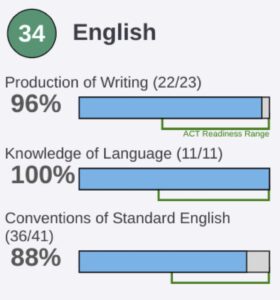 The ACT English section is where most test takers earn their highest scores. 51% of students achieved an ACT college readiness score of 18. Developing a foundational understanding of English, language usage, and writing are skills that students have been neglecting with their reliance on social media and text messaging (both of which are filled with slang, improper grammar, and nonstandard English language usage). Consequently, doing well on the ACT Reading, English, and Writing sections requires reading and writing more, and reading and writing well.
The ACT English section is where most test takers earn their highest scores. 51% of students achieved an ACT college readiness score of 18. Developing a foundational understanding of English, language usage, and writing are skills that students have been neglecting with their reliance on social media and text messaging (both of which are filled with slang, improper grammar, and nonstandard English language usage). Consequently, doing well on the ACT Reading, English, and Writing sections requires reading and writing more, and reading and writing well.
What Are We Learning?
Through our ACT Project, we are dispelling such myths as, “I am just not a good test taker.” Any student, from any school, is capable of developing deep levels of content knowledge when presented with the content accompanied by strategies for learning and retaining the content.
Our ACT contributors are not only good students, they are great leaders. Our project leader scored a “33” on her first testing. Instead of approaching her own test prep with the attitude, “I need to focus on my own test prep,” her approach has been, let’s share the learning strategies and study skills that each of us is using so that all of us can achieve deeper levels of learning and higher test scores.
What Should You Do?
If you have aspirations of getting into top colleges or qualifying for full scholarships, you must become an intentional learner:
- Identify your learning style.
- Take ownership of the Study Cycle.
- Identify your time-of-day energy levels and develop the appropriate time and location for studying.
- Identify the learning strategies and study skills that work best for your learning style, temperament, mindset, and grit.
The final step is to deepen your content knowledge in each of the ACT subject-areas and incorporate what you are expected to know into your daily study routines and classwork. This approach will make you a better learner and result in higher ACT scores.
These are not “suggestions,” these are proven strategies that will require realigning your priorities and committing more time to activities that matter in college admissions and scholarship consideration.
Why Become a Better Learner?

Learning Is Important
You must align your efforts in school with your aspirations for the future. What type of engineer would you become if you are not willing to develop a deep understanding of mathematics? What type of doctor would you become if you are not willing to develop a deep understanding of biology and human anatomy? What type of teacher would you become if you are not willing to become a thoughtful and pensively reflective learner?
ACT Scores Are Important
If your high school requires that you take the SAT or ACT, it should be viewed as an opportunity and not a burden. PSAT, SAT, or ACT exam scores can expand access to colleges, pre-college programs, internships, fly-in programs, and scholarships. We prefer the ACT because there should be alignment between your ACT scores and what you have learned in your K – 11 schooling. High test scores are the result of deep levels of content knowledge. This means that the quality of schools and teachers matter. However, so too does the quality of how you approach learning and studying. We have worked with private school students who have test scores that are no better than public school students attending low-performing schools.
Students who attend the best schools and who have the best teachers can still have low levels of learning and retention of learning if they are not vested in their own learning. In contrast, students attending the lowest-performing schools can achieve high levels of learning if they are vested in their own learning. Each year, there are thousands of students who earn top scores on AP exams without having taken the corresponding AP class. How do they do it? They read the book, teach themselves, and supplement their efforts with tutors.
What We Are Planning…
ACT Intensive Summer Sessions
We are planning 4-5 day ACT Intensive Sessions this summer, with each session focused on a specific ACT Section. Each session will address the following 5 components:
- What you expected to know on the ACT
- Learning and study strategies consistent with your learning style
- Developing a Study Cycle consistent with your grit, mindset, and temperament
- Daily pre- and post-testing
March Discussion Groups
10th and 11th Grade: We will continue our combined 10th/11th grade discussion group. Students should be prepared to discuss their summer plans and how they factor into their overall college planning strategy.
9th Grade: I (Mr. Wynn) will continue to facilitate the conversation with our 9th graders regarding building their résumé and branding. Students should be prepared to discuss their email signatures.
Emerging Middle School Leaders: All participating students should attend this meeting and be prepared to discuss the progress of their leadership/community service project. Congratulations to Peyton Wilson, the Emerging Middle School Leaders College Adviser, who has been admitted the The University of Chicago graduate school.
ACT Prep and Learning Strategies Plan: This month’s meeting will focus on each student’s contribution to the project.

Mark Your Calendar:
- March 9, 2024
- April 13, 2024
- May 11, 2024
Monthly meetings are restricted to students registered in our program and their parents.

Newsletter: February 1, 2024
February 1, 2024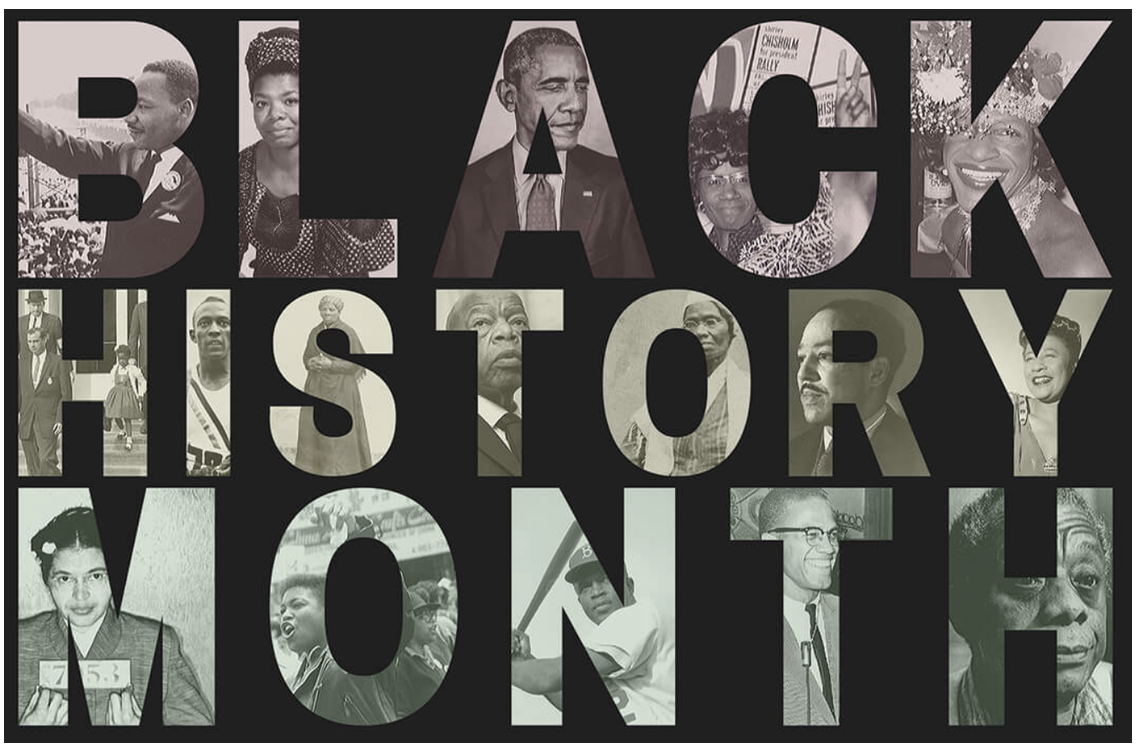
College Cohort News…
February 1, 2024
Mychal Wynn

Amidst the assault by many governors, state legislators, and state departments of education on teaching facts and attempting to remove historical truths from textbooks and school libraries, we pause to celebrate Black History Month and to reaffirm the historical breakthroughs occurring each year with our cohort students breaking through barriers into places and spaces where they have historically been underrepresented.
Our History Makers
In 2012, our son, Jalani Wynn, was selected as a Gates Millennium Scholar.
In 2012, Julian Nelums from South Cobb High School (GA) made history as our first Posse Scholar.
In 2013, our son, Mychal-David Wynn, made history as the first student in our program to graduate from Amherst College.
In 2015, Mikayla Hanna from Lake City Early College High School (SC) made history as the first UMBC Meyerhoff Scholar from the state of South Carolina and the first QuestBridge College Prep Scholar from her school district.
In 2015 and 2016, Mikayla Hanna and Rebeca Pacheco from Lake City Early College High School (SC) made history as the first 2 Gates Millennium Scholars in the history of their school district.
In 2017, Kimberly Hadaway from Paulding County High School (GA) made history as our first QuestBridge College Prep Scholar and the first student in our program to be offered 6 full scholarships (Amherst, Duke, Princeton, Vanderbilt, Washington & Lee, and Williams).
In 2018, Kristen Starks from Southwest Guilford High School (NC) made history as our first University of Richmond – Richmond Scholar.
In 2018, Damian Lee (Lake City Early College High School (SC)) and Otis Burns (Northern Guilford High School (NC)) made history as our first Northeastern University Torch Scholars.
In 2019, Yuzu Do from The Academy @ Smith (NC) made history as our first Elon University Odyssey Scholar.
In 2019, Sarah Lucas from Milton High School (GA) made history as of our first North Carolina A&T State University Dowdy Scholar.
In 2020, Sydney Barron from Early/Middle College @ GTCC (NC) made history as our first North Carolina Central Cheatham-White Scholar.
In 2020, Sydney Soskin from the St. Petersburg High School IB Program (FL) made history as our first University of Chicago Odyssey Scholar.
In 2021, Jada Foote from South Cobb High School (GA) made history as our first North Carolina A&T State University Cheatham-White Scholar.
In 2021, Tyra Grant from Collins Hill High School (GA) made history as our first Georgia Tech Clark Scholar.
In 2021, Faith Kumi from the Marietta High School IB Program made history as our first Ron Brown Scholar.
In 2021, Ian Fernandes from Karen Wagner High School TSTEM Academy made history as our first student to be offered admission to Caltech (Ian chose to attend Princeton).
In 2022, Justin Cleckley from Hillgrove High School (GA) made history as our first Georgia Tech Gold Scholar.
In 2022, Joanne Lioe from the St. Petersburg High School IB Program made history as our first Jack Kent Cooke College Scholar.
In 2022 and 2024, Juliana Itehua and Jayla Jones from Lake City Early College High School (SC) made history as the first 2 students in their school district to be offered admission to Williams College.
In 2022, Samual Patterson from Walton High School (GA) made history as our first Rhodes Scholar.
In 2023, Kimberly Hadaway, from Paulding County High School (GA) made history as our first Ford Foundation Fellow and first National Science Foundation Fellow.
In 2024, Tuyen Nguyen (St. Petersburg High School IB (FL)) and Chase Williamson (Union Grove High School (GA)), made history as our first students who will enroll at Caltech.
Congratulations
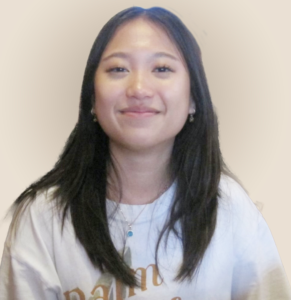
Congratulations to Tuyen Nguyen, from the St. Petersburg High School IB Program (FL), who is the only student in Pinellas County Schools to make it to the Semifinalist round of the Jack Kent Cooke College Scholarship. If Tuyen is selected, she joins other cohort Jack Kent Cooke College Scholars, Omar Dixon, Jr. (Brown University), who was selected in 2023 and Joanne Lioe (Johns Hopkins University), who was selected in 2022.
The Jack Kent Cooke Foundation announced that 558 high school seniors have been named semifinalists for the highly competitive Cooke College Scholarship Program. The Cooke College Scholarship provides Scholars with the opportunity to graduate with as little debt as possible. The award, which is last dollar funding after all institutional aid, can provide as much as $55,000 per year to pursue a bachelor’s degree at any accredited undergraduate institution.
This year’s Cooke College Scholarship semifinalists were selected from the largest pool the Cooke Foundation has received to date. Applications will be reviewed once more to choose the finalists to receive the scholarship. The 2024 Cooke College Scholarship recipients will be announced in April.
“We are awed by the breadth and depth of applications we received this year; there are so many talented students across the country, and we’re honored to have the opportunity to recognize their hard work,” said Executive Director Seppy Basili. “These students experienced tremendous challenges due to COVID at the outset of their high school careers which makes their accomplishments even more impressive.”
Congratulations to Latanya Munlyn, from J Paul Truluck Creative Arts and Science Magnet School (SC), who has been selected as a Semifinalist in the Seeds of Fortune Inc.’s 2024-25 Yale Women in Economics Scholarship Program.
“Seeds of Fortune Inc. Scholars in Partnership with Yale Women in Economics is a 10 Month program that delivers an Economics capstone project and college prep.
30 Scholars are selected to learn economics with Yale University professor’s in the goal of having young women of color enter the field of economics, as well as use the knowledge to rethink the economy for their communities.”
ACT Learning Strategies & Study Skills
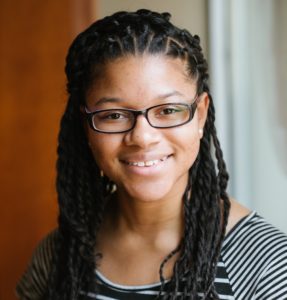
Repeating History
In 2016, Atlanta-area cohort student, Kimberly Hadaway, as a high school junior, created a free online ACT Prep class as part of her leadership and community service. Colleges paid attention as Kimberly went on to earn a personal score of 33 on the ACT, as she helped many other students expand their college and scholarship opportunities. Kimberly went on to receive 6 full college scholarships valued at $1.8 million.
8 years later, Kimberly has received a BA in Math and Chemistry from Williams College and is pursuing a Ph.D. in math at Iowa State University. Now, we have a group of cohort juniors who are building on Kimberly’s work by expanding beyond ACT Prep to incorporating learning styles, study skills, and learning strategies. As they pursue their work they are already learning that achieving high test scores is less about good prep and more about good learning. There is simply no substitute for content knowledge, which comes not from prepping, but from learning.
We are equally excited about the role that our students will play in not only guiding students in what they should be doing, but in providing testimonials of what they did. These are 5 ordinary students doing something extraordinary that will make a difference in the academic success of thousands of students.
College Cohort Scholars
Next month we will recognize our inaugural College Cohort Scholars based on their first semester academic performance GPA:
3.0 – 3.49 – Scholar
3.5 – 3.99 – Scholar with Honor
4.0+ – Scholar with Highest Honor
We have extended the deadline for participating students to submit first semester report card (grades 6 – 8) or high school transcript (grades 9 – 11) by 11:59 pm February 15, 2024. We will announce our College Cohort Scholars in our March newsletter.
February Discussion Groups
10th and 11th Grade: We had great discussion groups at our January meeting and will continue the format in which our 10th graders join our 11th grade discussion group. Mr. Doug Lucas and Rev. Dr. Yolanda Davis will facilitate the discussion.
9th Grade: I (Mr. Wynn) will continue to facilitate the conversation with our 9th graders and will shift our focus to how students can build their résumé during the second half of the school year.
Emerging Middle School Leaders: Last month, Tuyen Nguyen did a great job during the absence of college adviser, Peyton Wilson. Students will continue with their assignment of responsibilities in their community service project.
ACT Prep and Learning Strategies Plan: Jocelyne, our Community Outreach Coordinator, and her team will continue their discussions toward finaliziing our ACT Prep Project.

Mark Your Calendar:
- February 10, 2024
- March 9, 2024
- April 13, 2024
- May 11, 2024
Monthly meetings are restricted to students registered in our program and their parents.

Newsletter: January 1, 2024
January 1, 2024
College Cohort News…
January 1, 2024
Mychal Wynn
 Happy New Year! Welcome to 2024 and the second semester of the 2023-24 school year. Only a few short months ago, our middle school and high school students began the school year setting goals within the context of their college, career, and scholarship aspirations. The end of the first semester has provided a natural pause for students to reflect on the challenges and celebrate the successes of the first semester.
Happy New Year! Welcome to 2024 and the second semester of the 2023-24 school year. Only a few short months ago, our middle school and high school students began the school year setting goals within the context of their college, career, and scholarship aspirations. The end of the first semester has provided a natural pause for students to reflect on the challenges and celebrate the successes of the first semester.
With the dawning of the new year, our January Module engages students in a mid-year assessment during which students will assess their first semester success; update their résumés and profiles; and affirm second semester goals. Our mid-year assessment meetings with students and parents allow the opportunity for us to provide feedback on how students’ academic, leadership, and community service profiles are aligned with their college and scholarship aspirations.
The focus of our 2024 newsletters will be on recognizing our high school seniors as they announce their college enrollment decisions and are awarded scholarships. We will also be profiling students who are making contributions to our program and their local community as they pursue our 3 pillars of scholarship, leadership, and service.
Early Decisions
Congratulations to Tuyen, from St. Petersburg High School IB Program (FL), and Chase, from Union Grove High School (GA), who applied Restrictive Early Action and are on their way to Caltech. Tuyen plans to major in bioengineering while Chase plans to major in computer science.
Congratulations to Natalie, from the North Carolina School of Science and Mathematics who applied Early Decision and is on her way to Duke where she plans to major in biology.
The facts about Caltech’s Restrictive Early Action: Caltech is one of the most selective schools in the U.S. and only offers admission to about 3% of applicants. Tuyen’s admission to Caltech guarantees a full scholarship via the QuestBridge College Match program. Chase is a recruited athlete and will be joining the Caltech basketball program where player bios read more like emerging scientists than basketball players. Caltech is a NCAA D-III athletic program where recruited athletes are held to the same academic standards as all other applicants, which requires a review of their applications by the entire Caltech faculty.
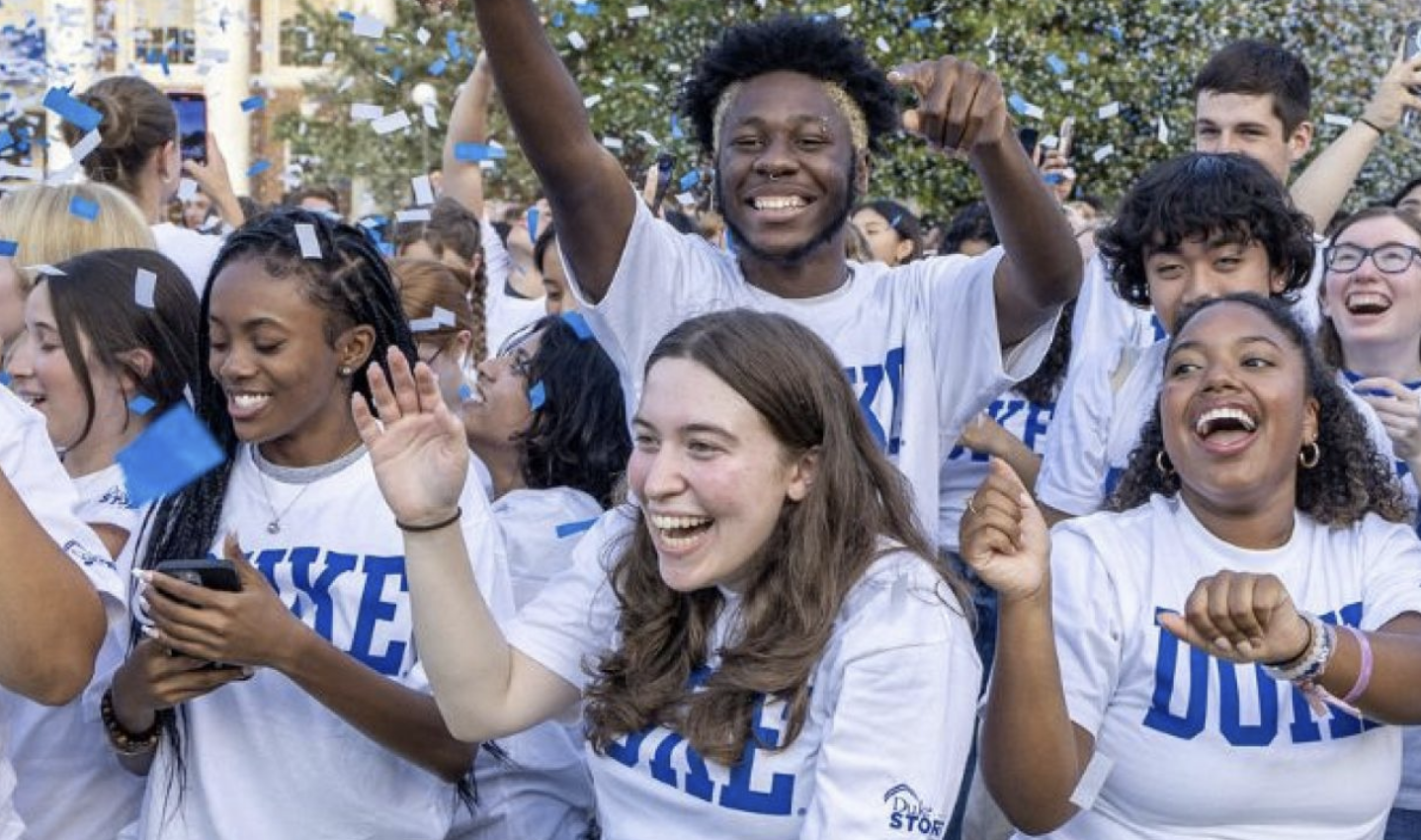 The facts about Duke’s Early Decision: Duke received a record number of early decision applicants (6,240) and offered admission to 806 students (a 12.9% acceptance rate), which is double Duke’s overall acceptance rate of 6.3%. Students applying to Duke via regular decision have less than a 4% chance of being offered admission. With both of her parents as Duke alum, Natalie is thrilled to continue the family legacy.
The facts about Duke’s Early Decision: Duke received a record number of early decision applicants (6,240) and offered admission to 806 students (a 12.9% acceptance rate), which is double Duke’s overall acceptance rate of 6.3%. Students applying to Duke via regular decision have less than a 4% chance of being offered admission. With both of her parents as Duke alum, Natalie is thrilled to continue the family legacy.
First Choice Decisions
Congratulations Jessica, Chance, and Jalaylah from J. Paul Truluck Creative Arts and Science Magnet School (SC).
Jessica has been offered admission to her top college choice, Benedict College, where she plans to major in psychology.
Chance has been offered admission to his top college choice, the College of Charleston where he plans to major in computer science.
Jalayah has been offered admission to her top college choice, Winthrop University, where she plans to major in education.
January Discussion Groups
10th and 11th Grade: We had great discussion groups at our December meeting and will continue the format in which our 10th graders join our 11th grade discussion group. Mr. Doug Lucas in the absence of Rev. Dr. Yolanda Davis did a great job facilitating the December discussion and challenged students to reflect on who they are and the body of work they will be presenting to future colleges and scholarship providers.
9th Grade: I (Mr. Wynn) will continue to facilitate the conversation with our 9th graders as they pursue becoming second semester academic superstars with what they are learning and implementing through our learning styles, study skills, and learning strategy focus.
Emerging Middle School Leaders: Our college adviser, Peyton Wilson, will continue to guide our Emerging Middle School Leaders through the leadership and community service project, which they will be introducing in their respective schools and communities in Georgia, North Carolina, and Florida
ACT Prep and Learning Strategies Plan: Mari, a junior at Chester High School in Chester, South Carolina will be joining Jocelyne, our Community Outreach Coordinator, and her team on our ACT Prep Project. All of the students participating on the project are high school juniors who are not only demonstrating leadership, but making a significant community service contribution to benefit thousands of students who are challenged with earning scholarship qualifying test scores.
Mid-year Assessment

Through the January Module, cohort students are engaging in their mid-year assessment. 3 key dates in our program are setting goals at the beginning of each school year; engaging in a mid-year assessment in January; and engaging in a year-end assessment in May. In this manner, students are continually monitoring their progress; engaging in appropriate interventions; and reevaluating coursework, activities, service, and leadership within the context of their college and career aspirations.
The January Module provides instructions for how students may request a mid-year assessment meeting. Reminder: Completing the first semester work is a prerequisite for requesting a mid-year assessment meeting.
11th Graders

MIT MITES Summer Program
The MIT MITES Semester and MITES Summer application and selection process is holistic, meaning that MIT considers a variety of factors when determining which students are the best fit for their programs. They look for students with demonstrated interest in science and engineering and a strong academic record who are motivated, hard-working, and focused on growth and improvement. Note how what we challenge students to do in our program is exactly what top programs are looking for in their applicants.
10th and 11th Graders

The LEAD Program is an international cross-sector collaborative of premier U.S. corporations, government agencies, higher education, and non-profit partnerships, that focus on developing high-potential youth of diverse backgrounds into high achievers and responsible leaders. The application period is now open for some of their summer institutes.

THE YYGS APPLICATION IS OPEN!
Yale Young Global Scholars (YYGS) is one of the most globally diverse, two-week academic summer programs in the world. Serving over 2,000 students from 150+ countries and all 50 U.S. states, YYGS distributes over $3 Million USD in need-based financial aid to both domestic and international students.
Apply for YYGS by January 10, 2024
Being invited to the Yale Young Global Scholars Program is a good indicator of your overall competitiveness as a college applicant. Previous cohort students, Jayla Jones (SC) was invited to YYGS and eventually offered admission to Williams College; Omar Dixon, Jr. (GA) was invited to YYGS and eventually offered admission to Brown University and selected as a Jack Kent Cooke College Scholar; and TaRetta Bright (GA) was invited to YYGS and eventually awarded the Alumni Scholarship (a full scholarship) to North Carolina A&T State University.
7th Graders

Jack Kent Cooke Young Scholars
The Cooke Young Scholars Program is a selective five-year, pre-college scholarship for high-performing 7th grade students with financial need. It provides comprehensive academic and college advising, as well as financial support for school, Cooke-sponsored summer programs, internships, and other learning enrichment opportunities.
Our Community Outreach Coordinator, Jocelyne Lioe, a junior in the St. Petersburg High School IB Program, is a Cooke Young Scholar and available to answer any questions regarding her involvement in the program.
The application period opens on February 9, 2024 and closes on May 9, 2024.

Mark Your Calendar:
- January 13, 2024
- February 10, 2024
- March 9, 2024
- April 13, 2024
- May 11, 2024
Monthly meetings are restricted to students registered in our program and their parents.


